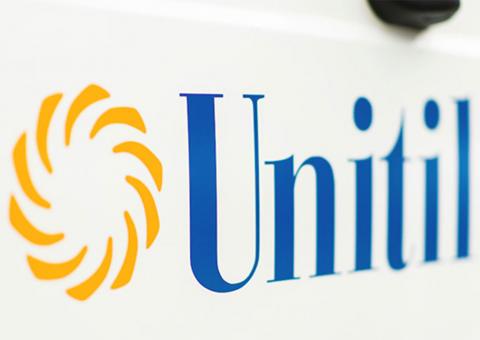7.16.13
7:52 am
Community, Storms & Emergencies
Concord, NH
As part of an ongoing partnership, the American Red Cross (ARC) and Unitil Corporation, a provider of natural gas and electricity to customers throughout New England, are advising local residents to prepare for continued hot weather this week with helpful heat safety tips.
“Excessive heat can be deadly; it has caused more deaths in recent years than all other weather events,” said Maria White, CEO of New Hampshire Region “We want everyone to stay safe during the hot weather and have some reminders for them to follow when the weather is hot and humid.”
Prolonged high temperatures can also put an added strain on the local electric infrastructure, with many people relying on their home air conditioners and fans for relief from the heat.
“The hottest days of the summer are when our system experiences the highest electrical loads,” said Carol Valianti, Unitil’s vice president of communications and public affairs. “In the event of an outage caused by this extra load, we encourage customers to check on family, friends and neighbors who are more likely to be affected by the heat and to plan for alternative ways to stay cool.”
The American Red Cross and Unitil encourage New Englanders to prepare for continued hot weather this summer by taking the following precautions:
-
Never leave children or pets in the car. The inside temperature of the car can quickly reach 120 degrees. Other heat safety steps include:
-
Stay hydrated by drinking plenty of fluids. Avoid drinks with caffeine or alcohol.
-
Avoid extreme temperature changes.
-
Wear loose-fitting, lightweight, light-colored clothing. Avoid dark colors because they absorb the sun’s rays.
-
Slow down, stay indoors and avoid strenuous exercise during the hottest part of the day.
-
Postpone outdoor games and activities.
-
Use a buddy system when working in excessive heat. Take frequent breaks if working outdoors.
-
Check on family, friends and neighbors who do not have air conditioning, who spend much of their time alone or who are more likely to be affected by the heat.
-
Check on animals frequently to ensure that they are not suffering from the heat. Make sure they have plenty of cool water.
-
If someone doesn’t have air conditioning, they should choose places to go to for relief from the heat during the warmest part of the day (schools, libraries, theaters, malls).
-
Know the signs of heat exhaustion and heat stroke.
-
HEAT EXHAUSTION Excessive heat can lead to sunburn, heat cramps, heat exhaustion and heat stroke. If someone is experiencing heat cramps in the legs or abdomen, get them to a cooler place, have them rest, lightly stretch the affected muscle, and replenish their fluids with a half a glass (about 4 ounces) of cool water every 15 minutes.
If someone is exhibiting signs of heat exhaustion (cool, moist, pale or flushed skin, heavy sweating, headache, nausea, dizziness, weakness exhaustion), move them to a cooler place, remove or loosen tight clothing and spray the person with water or apply cool, wet cloths or towels to the skin. Fan the person. If they are conscious, give small amounts of cool water to drink. Make sure the person drinks slowly. Watch for changes in condition. If the person refuses water, vomits or begins to lose consciousness, call 9-1-1 or the local emergency number.
-
HEAT STROKE IS LIFE-THREATENING. Signs include hot, red skin which may be dry or moist; changes in consciousness; vomiting and high body temperature. Call 9-1-1 or the local emergency number immediately if someone shows signs of heat stroke. Move the person to a cooler place. Quickly cool the person’s body by immersing them up to their neck in cold water if possible. Otherwise, douse or spray the person with cold water, or cover the person with cold, wet towels or bags of ice.
For more information on what to do when temperatures rise, people can visit redcross.org, download the Red Cross Heat Wave Safety Checklist, or download the free Red Cross First Aid. The app is available for iPhone and Android smart phone and tablet users in the Apple App Store and the Google Play Store for Android by searching for American Red Cross. People can learn how to treat heat-related and other emergencies by taking First Aid and CPR/AED training online or in person. Go to redcross.org/takeaclass for information and to register.
Outage updates for customers and information on how Unitil restores power are available at www.unitil.com.
About the American Red Cross:
The American Red Cross shelters, feeds and provides emotional support to victims of disasters;
supplies about 40 percent of the nation's blood; teaches skills that save lives; provides international humanitarian aid; and supports military members and their families. The Red Cross is a not-for-profit organization that depends on volunteers and the generosity of the American public to perform its mission. For more information, please visit redcross.org/nh or visit us on Twitter at @NHRedCross.
supplies about 40 percent of the nation's blood; teaches skills that save lives; provides international humanitarian aid; and supports military members and their families. The Red Cross is a not-for-profit organization that depends on volunteers and the generosity of the American public to perform its mission. For more information, please visit redcross.org/nh or visit us on Twitter at @NHRedCross.


